ONOAWARIẸ ĘDEVBIẸ pays tribute to Chief Clark, a brave and fearless Comrade
in the struggle for resource control in Nigeria
Chief Edwin Clark passed away on February 17, 2025; the news immediately sent shock waves down my spine, reminding me of his last phone call. The phone call was a culmination of a series of many phone interviews made to gather information for the book, Olomu and the Development of Urhoboland and Western Niger Delta, which Peter Ekeh co-edited with me and Peter Ishaka. Elder Clark was apparently pleased with my account of him in the book that he requested that I see him for documents that could be useful for work on a formal biographical sketch of his person. The gracious statesman did not stop there. He also conveyed his appreciation, once more, this time around, through two members of my family, my younger brother and nephew, Matthew and David Ẹdevbiẹ, respectively, when they paid a courtesy visit to the political icon at his home in Nigeria’s Federal Capital, Abuja.
The interviews, despite concerns for the candidate’s advanced age, turned out to be monumental, both in scope and content. They were not just history lessons but also insights into EK’s dedication to the struggle for fairness, justice and peace in the Niger Delta. As I noted in the Olomu book, no person as far as I know, has been a more articulate and splendid spokesperson for the people of the Niger Delta region. For it was EK who broke the ice that was congealing discussions over resource control, and the revival of the debate for fair and equitable distribution of resources, as would be expected in a typical federal system of government, that Nigeria purports to practise.
As the leader of the South-South delegation to the 2005 Nigeria’s Constitutional Conference, Elder Clark called for a return to the framework for revenue allocation as enshrined in Sections 133 and 134 of the 1960 Independence Constitution of Nigeria. The framework clearly stipulated that 50% of revenue accrued from any mineral resources or commodities, be allocated to the region where the resources of note are located, with the other 50% going into federal coffers.
The Constitutional provisions of the 1960s, were later abandoned when the Nigerian military headed by Major-General Aguiyi-Ironsi, illegally seized power from the civilian government in 1966. The military also saw nothing wrong in nullifying the pre-existing framework for revenue allocation. The Federal Government arrogated to itself, the right to keep most of the revenue, and decided which part of Nigeria to develop, thus limiting the ability of the federating units, to plan for the development of their respective areas. No region of Nigeria is more impacted by this lopsided arrangement for revenue allocation than the Niger Delta where EK Clark hailed from. If the level of exploitation, continues at the current pace, the various peoples of the Niger Delta, may not survive into the next century in the face of the infinite greed of those who believe that the oil resources of the region, are there for them to exploit. Given this feeling of threat or risk to life and property, it has now become the lot of the various peoples of the Niger Delta to take up the responsibility of protecting their common interests in their region.
In fact, the issue of resource control is not new to the people of Niger Delta. EK Clark’s great-grandfather, Ambẹkẹdẹrẹmọ was among a group of businessmen who fought for the control of the trade in palm produce in the late nineteenth century and early parts of the twentieth century. The advent of British imperialism was bound to arouse strong opposition from those who were convinced that it had not only stripped them of their sovereignty but also denied them their rights of free trade. The imperialists were determined to defeat any competition from local traders, first by securing from the European ‘Scramble for Africa’ Conference of 1885 held in Berlin, Germany, the right to declare all the coastal areas of what has now become Nigeria since 1914, as the Oil Rivers Protectorate and later the Niger Coast Protectorate.
Second, the imperialists granted a British company, in 1886, a royal charter as the Royal Niger Company with powers to ‘administer, make treaties, levy customs and trade in all territories.’ European firms were now able to move from the coast into the interior not only to create new alliances but also to dictate terms for trade including the fixing of prices. The fixing of prices was particularly obnoxious and was resented by many traders who considered it an act of economic exploitation. The local traders were defiant and rose up to become anti-imperialists, many drawn from a collection of idealists, including Jaja of Opobo and William Koko of Nembe, in the eastern Niger Delta, Nana of Ebrohimi and the great-grandfather, Ambẹdẹkẹrẹmọ Ogein of Kiagbọdọ of the western Niger Delta.
Edwin Clark and his family are particularly proud of their great-grandfather for the role, he played in the fight against political and economic exploitation by British colonial authorities and their agents. The irony for Edwin, is that not much has changed, even after over 100 years, in the fight over oil, which remains the major source of revenue for the Federal Government of Nigeria. Except that, for this time around, palm oil has been replaced by crude petroleum oil and natural gas, which are produced in abundance in the Niger Delta. As Edwin’s younger brother, Johnson Pepper-Clark, the esteemed poet and playwright remarked in his 2000 book, All for Oil, the players are the same: the government, the foreign interests and the local people, dispossessed and strapped to the bottom through various schemes in Nigeria’s destructive politics and wrecked economy.
Today, the Nigerian government, just like the European traders of EK Clark’s great- grandfather’s times, also arrogates to itself the right to decide what should be given to the people of Niger Delta on whose lands and waters, crude petroleum is produced. Besides the theft of their oil, the peoples of Niger Delta are left to deal with environmental despoilation caused by the exploration and production of oil in their lands. The exploration and production of oil and natural gas in the area, have degraded its ecosystem including land and waterways, rendering them polluted and infertile, to the extent that they can hardly support agriculture, and other means of livelihood for the people in the area.
Thus, the rise of EK Clark as an elder statesman, could then, be said to have much to do with his ancestry. It would also be fair to say that EK’s roots in the Niger Delta, run too deep for him to ignore the suffering of his people. Besides those of Ijaw, his roots are particularly visible in Urhobo areas of Olomu, Ughievwen and Ogọ. For example, EK’s mother, Pọrọ was maternally from Okpẹ/Agbon in Olomu and Erhuwaren in Ughievwen. His maternal grandparents and paternal great-grandparents, hailed from Adjẹkota, in Ogọ and Ovwodokpokpọ and Okpare in Olomu respectively. He was born in Erhuwaren, started school in Ephron otọ, attended Teachers’ College at Avwraka, and had lived with his family in Ughẹne, all Urhobo towns or villages. He had also participated in many Urhobo functions including attending meetings of the Urhobo Progress Union, and at one time, serving as its secretary, while in the United Kingdom, going to school. He viewed the Urhobo nation as the leading ethnic nationality in the Delta State of Nigeria and had called on Urhobo people to demonstrate leadership and the courage, to show the way for others in the region to follow.
In preparation for a life of activism. EK, like many of his contemporaries, started life as a teacher before joining the civil service, and moving on to the United Kingdom to study law. Armed with a law degree and the desire to serve his people, he returned to public service in a big way, securing a series of high-profile appointments. He was appointed the Director of Asaba Textile Mills in 1967, Commissioner for Education for the Midwest State of Nigeria (1968-1971), Director of Midwest Breweries (1972- 1974), Chairman of Bendel Lines (1973-1974), Commissioner for Finance and Establishment (1973-1974), and Federal Minister of Information (1975). During his tenure as the Commissioner for Education, he co-founded with the Midwest Military Governor, Samuel Ogbemudia, the Midwest Institute of Technology that later became known as the University of Benin; he also served as the Chairman and Pro-Chancellor of the University (1970-1975). He was also later to be appointed the Chairman of the University of Technology, Minna.
Also noteworthy is EK’s determination not to forget to fight for his area, when it came to securing government goods and services for the people. As a commissioner in the Midwest Government, he opened many schools in Western Niger Delta, got the government to build roads to connect Okpare, Kiagbọdọ and Ughẹne, and provide public lighting and potable water supply to Kiagbọdọ and communities in Olomu. In recent times, he established a university, E. K. Clark University in his hometown of Kiagbọdọ, not only for the education of Nigerian youths but also to serve as a repository for his papers for the benefits of researchers interested in the study of the History of Resource Control in Nigeria. He also founded the Pan-Niger Delta Forum (PANDEF) to promote inter-ethnic relations among the various peoples of Niger Delta, to foster security, peace, unity, and the development of their region. Obviously, in recognition of his services to the people, EK Clark was dutifully elected, a Federal Senator representing the Delta zone, which included the Western Ijaw electoral district in Nigeria’s National Assembly.
After over five decades of public service, to the people of Niger Delta and Nigeria as a whole, in so many capacities, no one can deny Edwin Clark, a place of honour, in the history of Nigeria. His strides across so many areas of public interests, have earned him ample recognition as a statesman, educator, lawyer and administrator. As an activist, he was never afraid to bare his mind on any issue of the day. He was very much an Urhobo man just as he was an Ijaw nationalist. In addition to his heritage, he had a profound knowledge of the cultures of the Ijaw and Urhobo. So were his famous brothers, Akpọrode Clark, a former Special Representative for Nigeria at the United Nation, and Johnson Pepper-Clark, a renowned poet and playwright, who retired from the University of Lagos as Professor Emeritus.
With all these fine qualities, one can understand why Edwin Kiagbọdọ Clark commanded a lot of respect and why so many, view him as one who held together, the cohesion and unity of the peoples of the Niger Delta. Many who knew him well, can say, without hesitation, that he had lived and died a brave man, unshaken in his belief that the only thing that matters in life, is the courage, one brings to bear on it. In his 97 years on earth, EK had been a vocal proponent of peace, an advocate for human rights, and a stalwart progressive before it was popular to be one. Like many who have taken the liberty to show gratitude for the services of other activists that preceded him in death, one could do no less for the elder statesman, Chief Edwin Kiagbọdọ Clark, than to salute him for his contributions towards the cause of peace and social justice.
And may his soul rest in peace.
Prof Ędevbie, Urhobo Historical Society



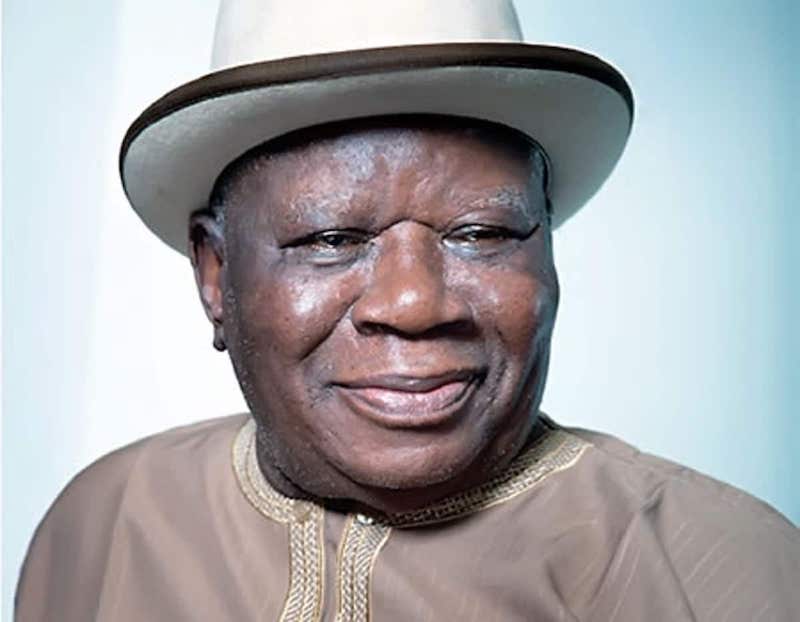
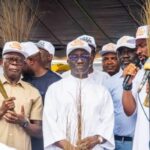
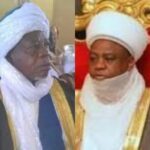
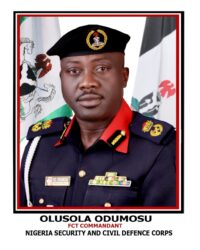
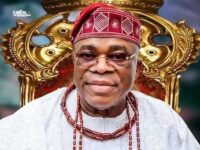

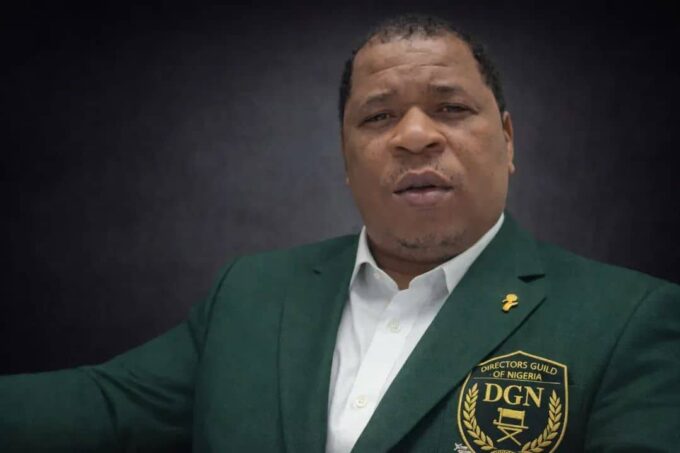



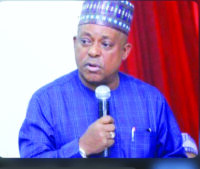

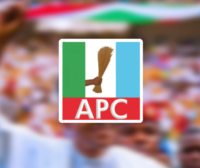
Leave a comment